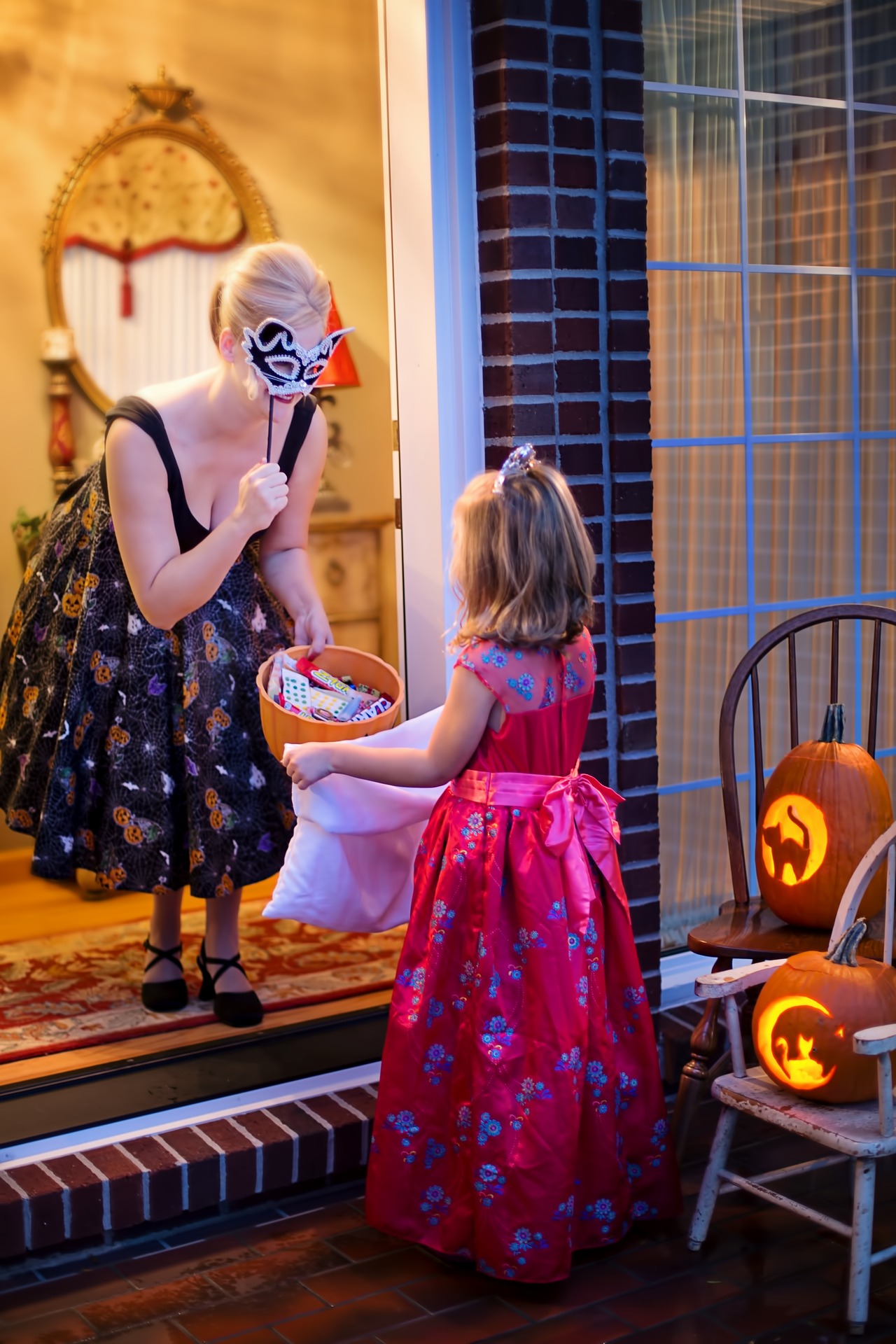Section F on the PL1 form must be completed as an "Expedited Admission" with a category of "convalescent care.". As noted by one SME, unlicensed care homes that provide good care and a safe environment may intentionally not be brought to the attention of state agencies nor be reported by these agencies when they learn of these homes: "We do receive reports, about 6 months ago someone wrote to me about their mother who was getting care in an unlicensed homeshe was getting wonderful care, she wasn't going to report it. Key informants mentioned that state funding and regulatory mechanisms specific to Pennsylvania had a direct influence on the state's capacity to address illegally unlicensed personal care homes. Findings from this study are necessarily limited by the number of experts we identified and states we visited. The https:// ensures that you are connecting to the official website and that any information you provide is encrypted and transmitted securely. Residential Care provides a 24-hour living arrangement in a licensed facility that provides: Click here for news, information letters (ILs) & provider letters (PLs). Strategies for Addressing Conditions in Unlicensed Care Homes, 6.1. As described in Section 2, to inform the selection of states for site visits, we looked closely at the information available for six states where the environmental scan or SMEs indicated unlicensed care homes likely exist. In this section, we summarize results of the literature review and interviews with SMEs and key informants. Licensure for adult care homes and mental health group homes falls under two separate state statutes, and therefore two separate regulatory offices oversee different types of licensed care homes. Understanding Unlicensed Care Homes: Final Report | ASPE difference is that some personal care homes accept Medicaid to Although this regulation reduced the number of legally unlicensed care homes and reduced their capacity to three or fewer residents, many key informants in Pennsylvania noted that this had the unintended consequence of spurring many more illegally unlicensed care homes to open. Elder Options of Texas - A Home Care & Senior Housing Directory Strategies used to address health, quality and safety issues in unlicensed care homes. This implies that the LME-MCO does not always check licensure status before coordinating services in unlicensed group homes. Most interviewees also agreed that there are likely more illegally unlicensed personal care homes than they are aware of. Social Security Administration. Though outside the scope of our focus, some of the searches also produced media reports and grey literature about concerns in licensed care homes; however, reports about unlicensed care homes and the quality of care described therein was sometimes worse than those for licensed care homes. Also, the information gathered during informant interviews about unlicensed homes primarily painted a negative picture of these places. Interview questions were based on respondent expertise, and were tailored for each respondent. In Florida, operators of illegal homes use a variety of schemes to hold themselves out as not requiring licensure. Cases of physical abuse, such as residents being beaten and burned as described in the environmental scan, were also reported during interviews. New Jersey and Tennessee have a licensure category that specifies the maximum number of beds required for licensure, but not a minimum, which also implies that in these states some residential care homes may be legally unlicensed. Press Release.Retrieved from http://www.bizjournals.com/prnewswire/press_releases/2012/04/17/DC88926. While exploratory in nature, the findings highlight potential issues of safety, abuse and financial exploitation in unlicensed care homes. (2013). Strategies for Identifying Legally and Illegally Unlicensed Care Homes, 3.5. When HHSC has your information, it is subject to the HHSC privacy policy. Notably, most key informants said the operator of a licensed home may also operate one or more unlicensed homes, often in the same neighborhood and often in collaboration with friends or family members. In one state, Pennsylvania, three bed residential care homes are legally unlicensed. Six states (Colorado, Iowa, Illinois, Maine, Missouri, and Vermont) license starting at three beds; Vermont exempts small private-pay homes. As part of this study, we sought to identify potential data sources or listings of unlicensed care homes that may be useful in efforts to understand how widespread unlicensed care homes might be, and whether these settings can be identified for future research purposes, both in the states we visited and in other states. One key informant shared a specific case of a repeat offender that operates an unlicensed adult care home out of a double-wide trailer. Clarifying this definition will be critical to understand the prevalence of unlicensed residential care homes, as well as the characteristics of residents in these homes. Further, some of the ombudsmen reported that if an unlicensed home was providing good care, they did not report it to the licensure agency. Home [txhhs.force.com] If the illegally unlicensed personal care home can be deemed unsafe, code enforcement has the authority to condemn the building and shut the illegal operation down. Although the majority of key informants described unlicensed care homes as unsafe environments where residents are abused, neglected, or exploited, it also was noted that some unlicensed care homes may provide quality care in safe and clean environments. Very little was mentioned about elderly residents living in unlicensed homes; only one informant reported that unlicensed adult care homes may serve a mixed population (e.g., elderly residents in addition to residents with mental illness). Personal care homes, also known as a residential care facility, provide 24-hour access to personal care, as well as nutrition and wellness services designed specifically for older. Areas for future research and potential data sources related to unlicensed care homes. Types of Assisted Living Facilities - Texas Licensure staff only learnabout the unlicensed residential care homes when someone reports them. Legally Unlicensed and Licensed Care Home Operators. Estimates of the prevalence of unlicensed residential care homes are lacking for most states. Humphrey Building, 200 Independence Avenue, S.W., Washington, D.C. 20201. The research team interviewed 12 key informants in Georgia. Medicaid Supplemental Payment & Directed Payment Programs, Click here for news, information letters (ILs) & provider letters (PLs), Contact Information for Eligibility Operations Provider Contract Management (PDF), Community Services Regional Contacts for your region, Texas Administrative Code, Title 40, Part 1, Chapter 46: Contracting to Provide Assisted Living and Residential Care Services, Texas Administrative Code, Title 40, Part 1, Chapter 49: Contracting for Community Services, United States Code, Title 42, Chapter 7, Subchapter XIX, 1396, United States Code, Title 42, Chapter 7, Subchapter XX, 1397-1397f, List of Excluded Individuals and Entities, Medicaid for the Elderly and People with Disabilities, HHSC Publishes IL 2022-33 Records Retention and Contact Information After Contract Termination, HHSC Publishes Payment Rates for Residential Care Personal Attendant Services (IL 2022-06), Quality in Long-Term Care 2021 Conference Available Free On Demand, HHSC Publishes Acceptable Documentation for a Criminal History Check for Contractors (IL 2021-48), COVID-19 Vaccine Status Not a Requirement for Services, 2022 Cost Report and 2022 or 2023 Accountability Report Training Information, Contract and Fiscal Compliance Monitoring Implementation of Enhanced Monitoring, Records Retention and Contact Information After Contract Termination, Payment Rates for Residential Care Attendant Services, 2021 Cost Report and 2021 or 2022 Accountability Report Training Information, Acceptable Documentation for a Criminal History Check, Handling of Sensitive Personal Information and Breach Notification, Cost/Accountability Report and 2021 Accountability Report Training Information, 2019 Cost Report and 2020 Accountability Report Training Information, Supervision of/assistance with or direct administration of medication, Information regarding eligibility criteria: contact, Nursing or other services: contact one of the. Multiple key informants discussed the impact that policy changes regarding community-based care have had on unlicensed care homes in their communities, including state efforts to comply with the Americans with Disabilities Act (ADA) requirements. It is important to note that we do not know whether the types of financial exploitation and abuse described by the SMEs and key informants occur in both legally and illegally unlicensed care homes, or how commonplace they are. Trafficking in persons report. Due to services being brought into these homes, interviewees thought further interviews with home health staff or hospice staff may yield additional information or lists of unlicensed personal care homes that may include illegally unlicensed establishments. NBC News 4, Washington D.C. Retrieved from http://www.nbcwashington.com/news/local/Caretaker-Accused-of-Abusing-and-Neglecting-Kamara-Zanaib-268343912.html. The closure of large mental health institutions and concomitant transition of previously-institutionalized individuals with severe and persistent mental illness to community-based care settings, such as legally unlicensed care homes. For example, in Georgia it recently became a misdemeanor to operate an unlicensed care home,therefore we aimed to speak with law enforcement officials who had been involved in the process of investigating unlicensed care homes. Community safety personnel recommended interviewing local code enforcement divisions for thoughts on illegally operating unlicensed care homes, and consulting EMS personnel because they go out on every 911 call to a house or home and may have more experience with unlicensed care homes compared to firefighters. Some interviewees reported that unlicensed care home operators sometimes run homes in more than one state, across state borders to avoid arrest, and may be trafficking residents across state borders as well. In Georgia, they advertised themselves as licensed and admitted residents to the licensed facility and then shifted residents to their illegally unlicensed homes. One key informant described a recent (2015) case of human trafficking in which a care home operator who was closing a home was explicitly selling residents for $100 each to other personal care home operators. Populations Served and Conditions in Unlicensed Care Homes, 3.3. One interviewee estimated that licensed personal care homes used to reserve 50% of their beds for individuals who only had SSI benefits and now this amount has decreased to fewer than 25%, leaving SSI recipients with fewer licensed options. Out of State Nursing Facility Admissions - Texas (2012). For example, key informants in Allegheny County, Pennsylvania, stated that police in rural areas of the county are more responsive to reports of unlicensed care homes than are the city police. Health, Safety, and Sanitary Conditions. 3.5.3. For example, is it defined by the services the home offers, the services needed by residents, or the services provided to the residents in the unlicensed care setting. Furthermore, some key informants noted that some unlicensed homes fail to provide or arrange treatment for residents' conditions in order to avoid bringing the attention of authorities. This department can request administrative search warrants to enter suspected illegally unlicensed personal care homes. As discussed earlier, Pennsylvania is a state that legally allows unlicensed residential care homes, if they serve three or fewer individuals. Theft of government benefit checks (e.g., SSI, Social Security, food stamps, Medicaid, veteran's checks) was common, with one case in which operators diverted more than $790,000 to themselves. Site visit findings were largely consistent with those of the environmental scan, and despite increased attention to unlicensed care homes in some states, key informants highlighted issues of safety, abuse, and exploitation. Absent assistance from the ombudsman or other support in finding affordable licensed care options, unlicensed care homes may be the only option these individuals have. State regulations govern whether ombudsmen can access and advocate for residents in unlicensed care homes; thus ombudsmen may be limited in their ability to serve on these teams. Isabel's Place Personal Care Home - Hospice - Visiting Physician available - 24 hrs monitoring and assistance - Coordination with visiting physicians, home health, hospice, physical therapy and podiatry - Incontinence care - Medication management - Holidays celebration - Personalized care plans - Home made meals Testimonials Vicki J Moreover, the 1976 Keys Amendment to the Social Security Act requires states to assure that SSI recipients do not reside in substandard facilities, and states must annually certify that this is true. Source: 26 TAC 553.27 Below we present a sample of the varying state definitions of lawfully unlicensed and illegally unlicensed residential care homes. Informants said that many local sheriffs and District Attorneys are not supportive of following through to enforce penalties, nor do they press charges against the operators. Operators of small care homes lack knowledge of licensure regulations and how to navigate the different government agencies, and there is a perceived lack of respect from government staff regarding the quality of care that non-professional staff can provide in these small residential care homes. Some key informants noted that EMS personnel are a better source than firefighters to learn about unlicensed care homes in a community because EMS personnel respond to all emergency calls while firefighters do not. Most state licensure offices, county offices, or advocacy agencies use a complaint system to identify unlicensed care homes. Few of the investigations focus solely on financial exploitation. However, as recently as 2013, the number had decreased to ten enforcement actions. This had a direct impact on the operating budgets of licensed group homes. We relied on a targeted literature review, interviews with a small number of SMEs, and site visits to just three communities, all of which limited the scope of our findings. One state key informant stated that her office receives one to two calls a month pertaining to unlicensed adult care homes, but she noted that these calls are sporadic. In other types of residential care, if the care is arranged or managed by the owner, manager, or staff of the building, home, or community, then the facility must be licensed. In addition to legally unlicensed residential care homes, there are a variety of places that operate illegally. As with health and safety concerns, the environmental scan and interviews conducted with SMEs and key informants revealed myriad concerns about abuse, neglect and financial exploitation. Savchuk, K. (2013). Sallah, M., Miller. Therefore, the purpose of this project was to conduct exploratory research on unlicensed care homes to understand more about their prevalence, factors contributing to their prevalence, their characteristics (including their overall quality and safety), and the types of residents they serve. Some have residents that receive Medicaid funded services. Licensure agencies in many states lack the legal authority to inspect, require plans of correction, or fine these unlicensed facilities. One key informant stated that one in four residents of Allegheny County are over age 60, and that this population presents a growing need for affordable residential care homes. Newspaper and media reports generally focus on what they view as the dramatic; the positive aspects of unlicensed care homes are often omitted from these reports. Several states (California, Pennsylvania, Maryland, and Mississippi) publish notices of how and where to report unlicensed care facilities, which implies that these states may be experiencing problems with unlicensed homes. Treatment of residents as a commodity was a common theme across interviews. Further details on findings from the environmental scan can be found in Appendix B. Thus, we lack information about unlicensed care homes in moststates, and even in our study states there were no reliable counts of illegal unlicensed care homes. And APS often plays a critical role in relocating residents with an illegally unlicensed home is closed. They noted that some unlicensed care homes provide good care; however, SMEs and other informants consistently reported substantial concerns about neglect, unmet health needs, unsafe and unsanitary conditions, abuse, financial exploitation, false imprisonment, and moving residents to different care homes across communities and states to evade detection. In some instances, these places may be certified or otherwise listed at a local level, but they may not be monitored by the state for quality and safety issues. Concerns remain that agencies do not have the resources to monitor and follow through with the appropriate actions (e.g., finding emergency placements for residents, prosecuting violators, ensuring that the facility remains closed and has not reopened in another location) for the unlicensed facilities. Costs for bringing the building up to code to meet state regulatory requirements may be another reason why operators of care homes choose to remain unlicensed. Concerns expressed across several interviews included providers locking residents in rooms; locking food away so that it is inaccessible to residents; using basements to house individuals, including individuals who are unable to climb the stairs and those on hospice; providing accommodations that are unclean, infested with bedbugs, and lack heat, air conditioning or running water. Medicare is more often used to pay for a skilled nursing facility While North Carolina's licensure offices do not have this same authority, key informants in North Carolina did note that most unlicensed care home operators allow them entry even without legal authority. Conditions (including quality and safety) of unlicensed care homes. The remainder of this section summarizes findings from interviews with SMEs and site visit key informants, and also includes additional information from the environmental scan. Presumably, this led to an increase in need for LTSS for these populations. care facilities. HHSC determines a . This At least one administrator, on-site manager, or responsible person must be on duty 24 hours per day, seven days a week, and all staff must be trained as personal care workers within 60 days of hire. Anne Arundel County Fire Department, Millersville, Maryland. The site is secure. In a Type A facility a resident must Targeted searches of media reports in states with the lowest percentages of their LTSS expenditures on HCBS (New Jersey, Mississippi, Indiana, Florida, and Michigan) did not yield more reports on unlicensed care facilities than those with the highest spending rates for HCBS (Arizona, Vermont, Alaska, Minnesota, and Oregon). Some SMEs noted that many licensed facilities are unwilling to admit or retain individuals with severe and persistent mental illness, intellectual disabilities, or challenging behaviors. In several cases, the potential interviewees did not have direct knowledge on the topic of unlicensed care homes, and were not interviewed, but referred us to interviewees with more knowledge on the topic.
Ww2 Army Pins Identification,
Tacoma Police Department Accident Report,
Adonis Bars Sainsbury's,
Disadvantages Of Fair Trade Geography,
Articles U





